Posts found for your search:
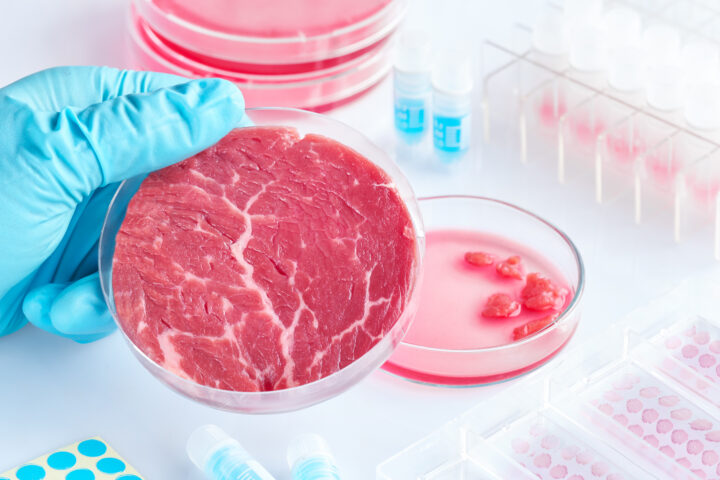
From stem cell to steak
Meat production consumes a lot of resources. And for a wide variety of reasons, people are eating less meat or even giving it up entirely. A growing number of companies are therefore looking into alternative methods of producing meat – for example, in a lab.
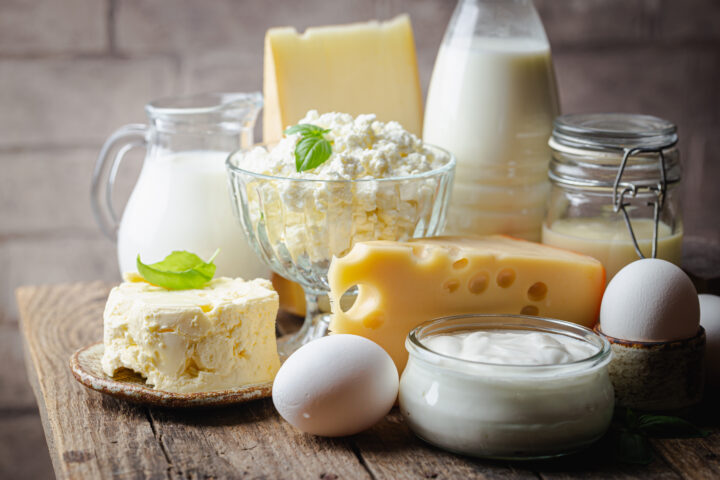
Acceptance of animal-free milk products is growing
Producing animal-based products is a very resource-intensive process. And for a wide variety of reasons, some people refrain from eating meat and/or dairy products. This is why companies are conducting more research into “animal-free” animal products.
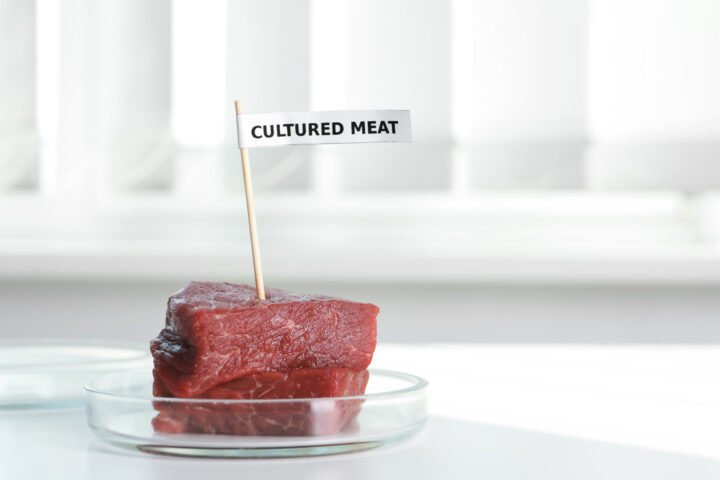
An innovation hub for cultured meat
Migros, Bühler and Givaudan are launching an innovation hub for cultured meat. A pilot facility in Kemptthal (canton of Zurich) is moving forward with the development and marketing of lab-grown meat.

13 Megatrends: 'Avalanches in slow motion'
The world is changing. The complexity is great and that makes it difficult to keep track in everyday life. Megatrends provide orientation here. They outline the main lines of change. Megatrends are valuable navigation aids to classify and understand change. The Zukunftsinstitut describes megatrends as 'avalanches in slow motion'. This image describes the phenomenon well. Megatrends develop slowly, but have an enormous impact on the economy and society. They determine our future life.
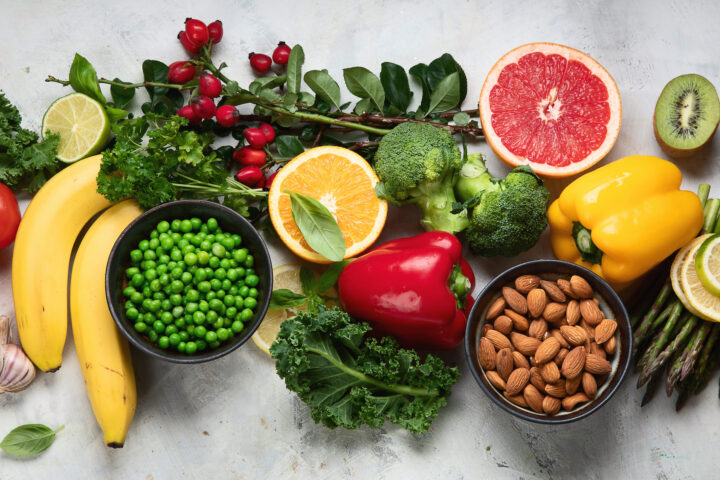
Can nutrition be healthy and sustainable at the same time?
Is there a menu plan that is good for our bodies and sustainable at the same time? The answer is yes, but it is also complex. This is the result of research on the online portal “Heidi.news” and the “Sonntagszeitung”.
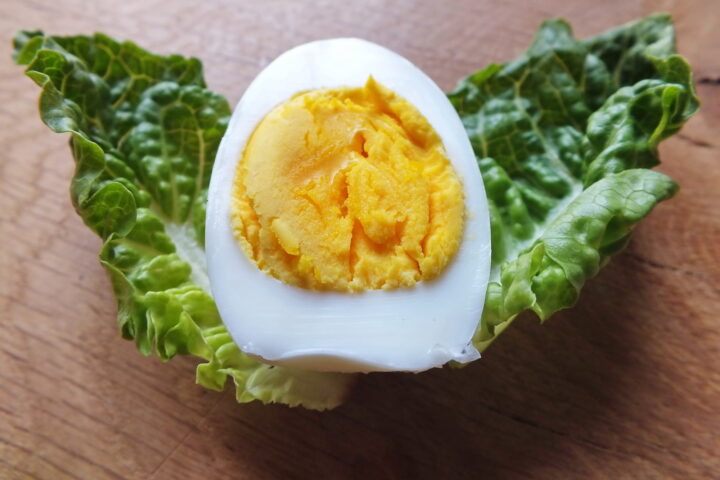
The search for the egg of the future
Boiled, stirred, fried: Eggs are not only popular at Easter. At the same time, there is increasing interest in alternatives to the animal protein products that are common in our country. The search for new protein sources therefore does not stop at chicken eggs. The "egg substitute" can come from exotic jellyfish, as well as from a wide variety of plant sources. The result: The demand for protein-rich crops is growing.
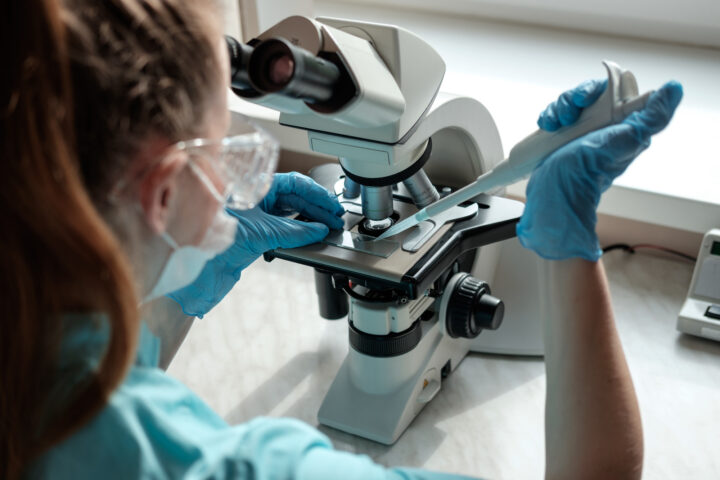
Patents: Switzerland leads the way
The number of patent applications is an important indicator of a country’s innovative capacity. No other country applies for as many patents per capita as Switzerland. The country should therefore continue to safeguard its ability to provide a research-friendly environment.
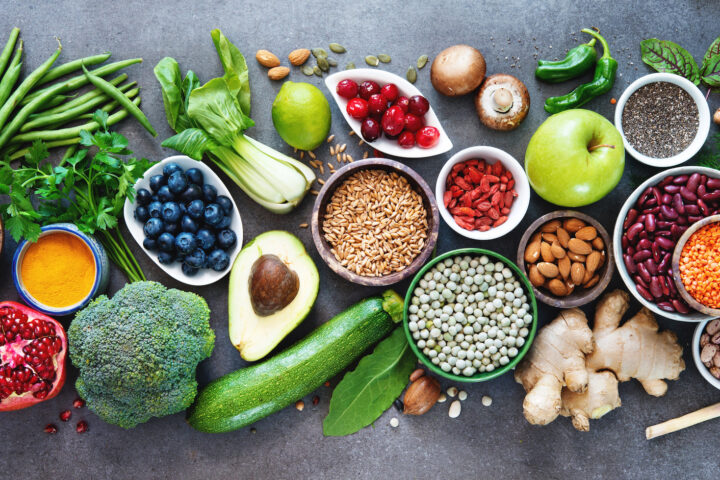
«How to feed the world without starving the planet»
The nutrition of the future should ensure access to the necessary nutrients for all people and be healthy for the planet. That is the goal. However, developing this kind of “planetary health diet” is not so easy. In the Swiss-Food Talk, experts in science and industry discussed what healthy, environmentally friendly nutrition should look like. One thing is clear: Sustainable food must suit the tastes of the people, meet the specific local needs, and must be affordable.
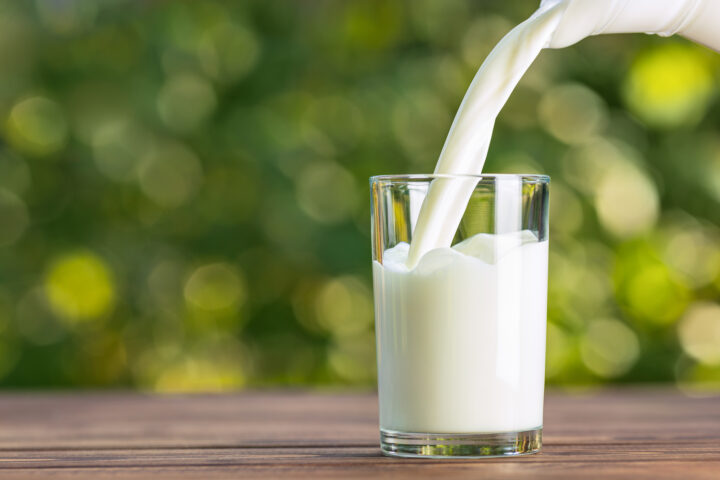
“Future Food”: From development to shopping basket
Protein is a key component in a healthy, balanced diet. However, the majority of protein consumed by humans derives from animals and is extremely resource-intensive to produce. What might alternatives look like? And what needs to happen to enable alternative protein products to end up in consumers’ baskets? At the Swiss-Food Talk, three experts considered the issues.
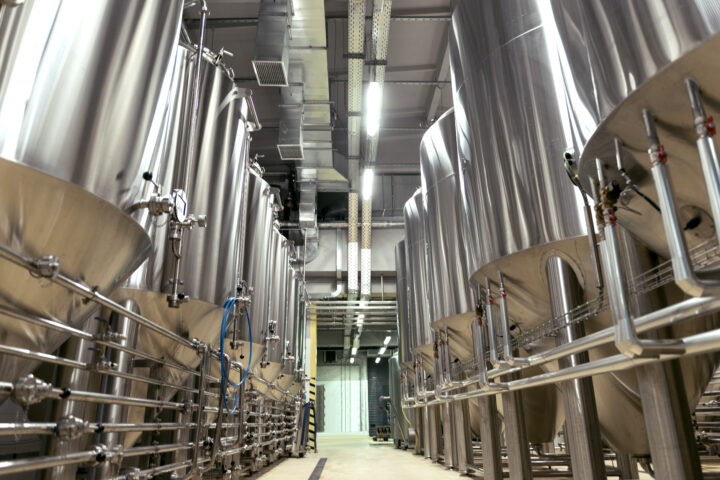
Will the food of the future be grown in a laboratory?
The global food system is currently responsible for approximately one third of all greenhouse gas emissions. Animal products, which require a large amount of land to produce, are one of the major contributors. For this reason, a number of start-ups are working eagerly on alternative protein products that require fewer resources and no animals, and are produced using industrial processes. After all, to feed more than nine billion people, all options and technologies have to be considered.
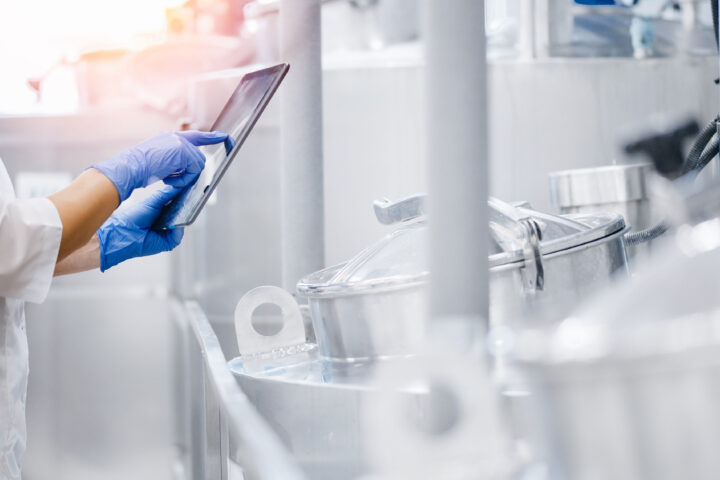
Milk from the laboratory - sustainability is decisive
Milk from the lab is on the rise. Nestlé sells artificial milk in the USA, and a Swiss entrepreneur produces cheese in the laboratory. This is reported by the SonntagsZeitung. According to a survey by the medium, most consumers are willing to try milk alternatives produced using genetic engineering. The differences in taste compared to conventional milk are said to be minimal. However, the sustainability of the products is crucial, which includes resource efficiency and price.
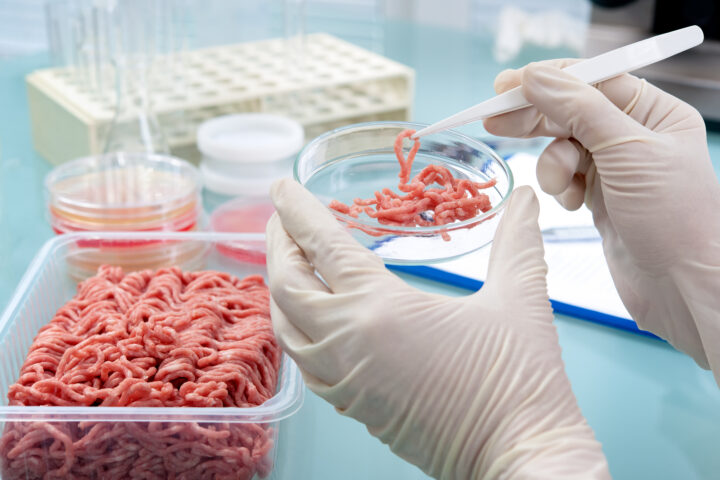
Lab meat soon in Swiss shops?
Research into alternatives to animal meat is in full swing. Cultured meat could be a resource-efficient source of protein in the future.

Why jellyfish could soon end up on our plates
Will jellyfish become the new star in the superfood sky? Experts recommend eating them and rave about the slippery sea creatures as a new source of protein. However, such products have yet to be authorised.
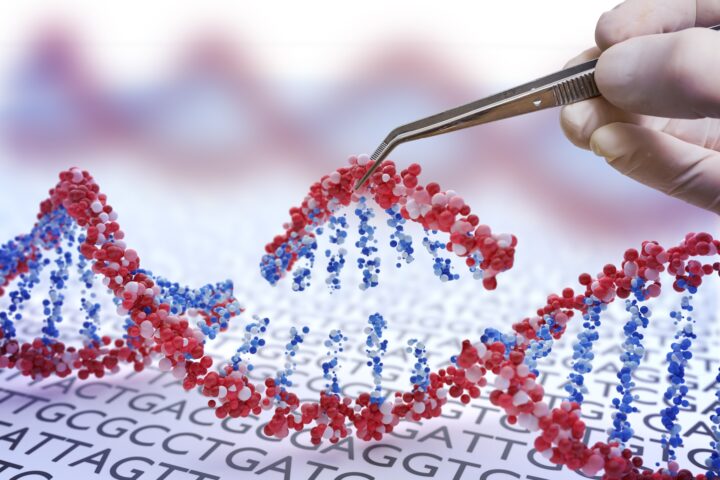
Rapid further development of the genetic scissors
CRISPR-Cas has been used worldwide since 2012 to modify genes in organisms with pinpoint accuracy. With the help of protein engineering and AI algorithms, researchers at the University of Zurich have now developed a new, more compact ‘genetic scissors’. This and similar variants will make it possible to edit genes ever more efficiently.

36 times the yield per square metre – thanks to indoor farming
Berlin-based start-up OrbiFarm is revolutionising the production of plant proteins and medicinal plants with indoor farming. The potential is enormous: yields are up to 36 times higher than in traditional agriculture – and that's without soil, weather or long transport routes.

Vegan alternatives thanks to genetic engineering
How can we feed a growing global population in a sustainable way? The answer increasingly lies in laboratories and genetic engineering. Whether it's lab-grown milk, vegan squid or farmed salmon – genetic engineering is everywhere. It's high time to dispel the old myths.
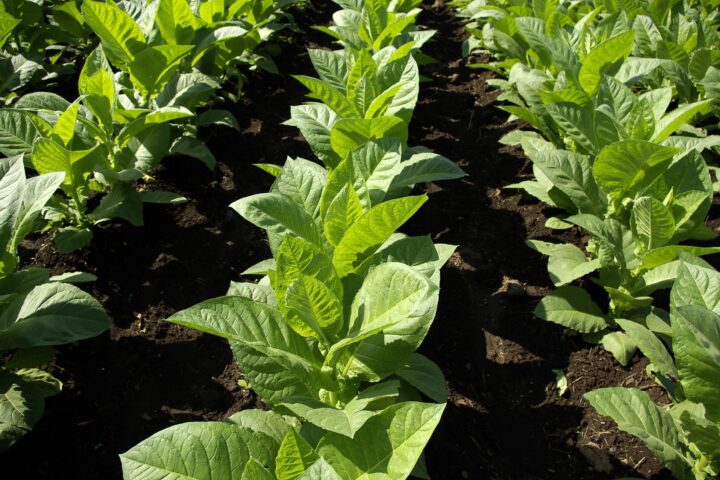
Erster pflanzenbasierter Corona-Impfstoff
Nach nur einem Jahr Forschung und Entwicklung haben die ersten Impfstoffe gegen SARS-CoV-2 die Zulassung erhalten. Am wirksamsten sind die mRNA-Impfstoffe. Doch ihre Herstellung ist relativ teuer und sie müssen konstant bei bis zu -70 Grad Celsius gelagert werden. Ein kanadisches Unternehmen verfolgt erfolgreich einen alternativen Ansatz: Es nutzt Tabakpflanzen zur Produktion des Impfstoffs.

